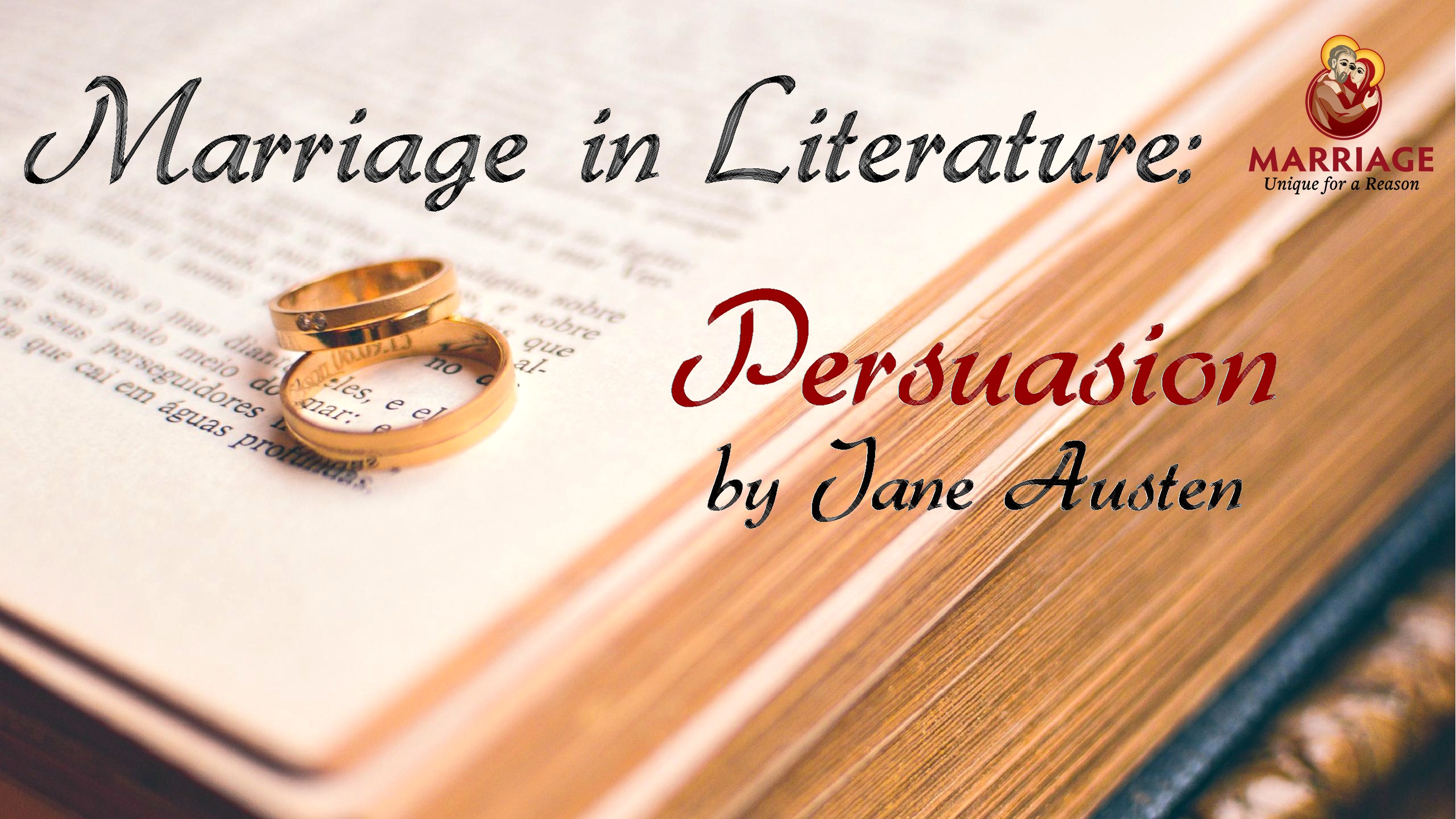Jane Austen’s Persuasion (published 1817)
Austen’s most popular novel is Pride and Prejudice, but the character of Anne Eliot, in Persuasion, deserves some attention. Of all Austen’s heroines, Anne is the one who waits the longest to receive her vocation to marriage. In these days of delayed marriage and dropping marriage rates in the United States and Europe, we should spend a little time with Anne Eliot.
Here is the basic story arc for those of you who are not Austen fanatics: Anne is the unloved, plainer daughter of an aging and irresponsible gentleman. As a young woman, she fell in love with a Naval man (Frederick Wentworth) whose prospects were uncertain and of whom her family did not approve. Anne was guided by a woman who acted as a mother to her (hence the title of the book), and broke the engagement. Wentworth left with wounded feelings and went on to make a fortune in the war as a Captain. He returns into Anne’s life bitter and resentful, and thus the story begins.
This post is for the single ladies:
- Patience is a suffering that both comes from and produces virtue.
Anne was quite young when she refused Captain Wentworth. She was persuaded by others at the time, but looking back she thinks that, “she should yet have been a happier woman in maintaining the engagement, than she had been in the sacrifice of it” (Ch. 4). During the intervening seven years, between Wentworth’s leaving and coming back, Anne does not wallow in regret or live in selfish preoccupation with what she lost. But she also does not compromise out of fear of being alone; Anne receives at least two proposals from other men but does not accept them. She is a virtuous woman; she suffers but does not despair. She endures the pain of recognizing that the man she refused would have been the best partner for her, and in doing so she becomes even more worthy of Wentworth’s love. Anne says: “All the privilege I claim for my own sex (it is not a very enviable one; you need not covet it), is that of loving longest, when existence or when hope is gone” (Ch. 23).
- There is a difference between the compromising that is necessary in marriage and the compromising of important values for the sake of getting married.
Compromise is important in any relationship. Anne’s future with Captain Wentworth will be full of things that they will compromise about; their temperaments are different and he is much worldlier than she is. But these compromises in marriage are fruitful and necessary. They do not mean that either of them “compromised” by marrying the other. Learning that Anne rejected Charles Musgrove is a moment that might disturb the reader, because Charles is a good man. Could Anne have been happy with Charles? Perhaps. She certainly would have been a better wife to him than her sister Mary is. But when you think about all of Anne’s interests and qualities, her quiet passion for poetry and music, her utter calm in a crisis and interest in travel, you can see that she would have been stagnant in a life with Charles. Then, when Mr. Elliot proposes to Anne, and Lady Russell urges Anne to accept him, we see an even more important refusal on the grounds of character. Even though Anne is practically an “old maid” by that time, Anne will not enter marriage without love.
- Look for a man who is authentic and trustworthy.
“Mr. Elliot was rational, discreet, polished, but he was not open. There was never any burst of feeling, any warmth of indignation or delight, at the evil or good of others. This, to Anne, was a decided imperfection. Her early impressions were incurable. She prized the frank, the open-hearted, the eager character beyond all others. Warmth and enthusiasm did captivate her still. She felt that she could so much more depend upon the sincerity of those who sometimes looked or said a careless or a hasty thing, than of those whose presence of mind never varied, whose tongue never slipped” (Ch. 17). Anne does not trust Mr. Elliot because he never shows what he is really thinking or feeling. He is always self-possessed and calculating in his words and actions. This is a good reminder for women to really pay attention to what a man reveals in his less guarded moments; and if there are none, pay attention to that too!

Leave a Reply